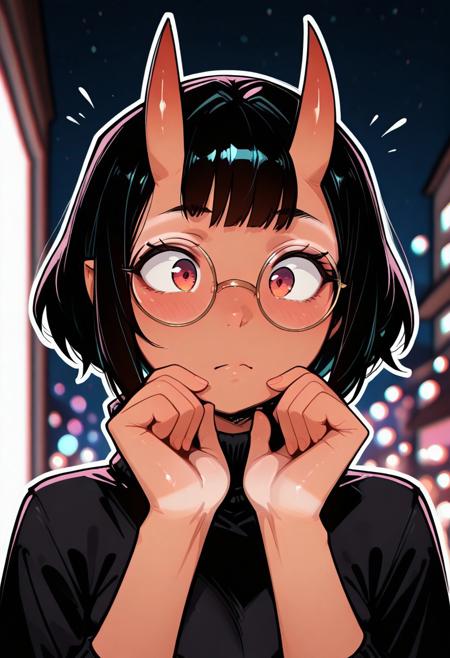You must have stumbled upon the general anti-AI sentiment, and if you're here, it's safe to assume you don't share it fully. But have you ever stopped to think about AI in general? I did, because my brain can't help it.
Keep in mind - this is not meant to be a complete list, but a collection of the most common points. If you can bear with my rambling for a bit, maybe you'll find something useful.
AI is theft.
That's by far the most common argument. Now, there are several cases where models have been trained with data that was not in the public domain (e.g. private collections) and it is not hard for the proponents of this theory to find proof of misuse.
The flaw in this argument is that it confuses abuse with a structural flaw in the technology. A similar example comes from crypto - I am sad for cryptobros, but most crypto apps now are clearly exploitative. But this has no bearing on the underlying blockchain tech.
The fundamental error is to think that AI can 'store' an artist's portfolio in its internal memory, and the mix and match it as the prompt dictates. This is factually incorrect since singular images are turned into weights during model training. The dataset is not meant to survive the process. If making statistical correlations between a set of images is theft, what should be do with painters that visit museums, or writers that read books?
AI is disrespectful of human artists.
It's a slightly different angle here, but IMHO it has more leverage and doesn't rely on misunderstanding the technology. Imagine having spent years to build a recognizable trait, and imagine that the market is not really kind to any form of artistic endeavor. You'd be pissed if AI art would suddenly pop up in google searches for your name and your brand. You'd be even more pissed if that art was monetized.
I think this is straight up one of the biggest problem in GenAI now, as far as image generation goes. There are a couple of ways to solve it or to alleviate it - e.g. payment models for artist-curated datasets, or stopping labeling data with living artists' names.
Admittedly, both ways are difficult to enforce. Nothing would stop someone with GPUs - or cloud know-how - from training their how homebrew LORAs.
AI is bad/laughable/useless; you can tell it's AI.
Maybe two years ago it was like that. Now more and more studies are popping up showing that most people cannot tell the difference.
I want to address the useless part, because I think it's most offensive of the claims. Sure - the world would keep spinning if tomorrow CIVITAI, or any other AI platform, would go down permanently. But the underlying LLM technology under GenAI has been applied to countless fields, medical science first and foremost. When you have AI models able to recognize cancerous cells from healthy one, the 'useless' argument reveals ignorance and a certain lack of imagination.
What worries me most, here, is that this crusade against techbros is slowly pivoting into a general 'technology is bad' stance which is incredibly luddite.
AI is bad for the environment.
Yea. There are good sources about this, even if they might be a bit sensationalized. Yet we cannot really deny that busting new models of GPUs every year and keeping server farms open to generate hyper-breasted anime girls is general not a net positive on CO2 production, to say the least.
While it's not a strong defeater, we should say the same about cloud computing, all social medias, the videogame industry, smartphone factories, car manufactoring and so on. It's a bit strange that as the 'new and shiny tech' AI should face the blunt impact of this accusation and it makes me honestly doubt the good faith of this argument.
Still, in all the above examples, I do believe we should find a solution (or face extinction in 200 years).
---
Where are we going? If the tech keeps up, in the forecoming future we'll be unable to tell human-made from AI-generated. I feel most of the implications of this (e.g. the loss of income for some specific markets) exacerbate already existing problems.
I don't believe a ban on AI is advisable or even possible - once pulled out of the magician's hat, the rabbit cannot go back in. Short of a worldwide crisis we won't stop using GPUs.
Some of the most vocal speakers against AI reveal their ignorance when talking about alternatives (e.g. shutterstock comes up often, as if image theft and photo appropriation wasn't a problem before GenAI).
I also think we're far from being spotless. The hustle culture dictates that every ounce of our free time must be devoted to make a profit - and if it comes at someone else's expense, sucks for them. From books to Etsy shops, selling AI-content, especially when undisclosed, or when closely mimicking the fame of living artists, is a 'bad practice' to put it in the lightest of terms.
Thanks for coming to my ted talk. There's much I didn't touch upon, but let me know if you want more ramblings.


